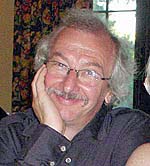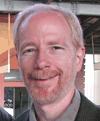|
|
Programme
|
|
Pre-/Post-congress workshops
In conjunction with the 20th International Personal
Construct Psychology Congress, we are delighted to announce two workshops
presented by two luminaries in the field.
(1) The first workshop will be held in the afternoon of July 17,
2013 at the Vibe Hotel, Milsons Point (the Conference venue): Note this is a
half day workshop.
(2) The second workshop will be held on July 21, 2013 at the
Vibe Hotel, Milsons Point (the Conference venue): Note this is a full day
workshop.
|
Personal construct psychology: an introduction
Prof David Winter
This workshop will be held in the
afternoon of July 17, 2013 at the Vibe Hotel, Milsons Point (the Conference
venue): Note this is a half day
workshop: 1.30 - 4.30 pm.
Fees:
| Full registration |
$A 100 |
To book click here
|
Students
|
$A 75
|
To book click here |
George Kelly’s personal construct theory is
often seen as challenging and anxiety-provoking by newcomers to it because of
its novel vocabulary (since it was a radical alternative to existing
psychologies, Kelly could not simply borrow the familiar terms of these
psychologies) and assessment techniques. This workshop will provide an
introduction to the theory and its techniques for those who are unfamiliar with
it or wish their knowledge of it to be refreshed. As such it will assist them
to derive the maximum benefit from the subsequent congress.
The contents of the workshop may be adapted
to accommodate the needs of the participants, but will include:
- personal construct theory and its
terminology
- links with other approaches
- personal construct assessment techniques
and their analysis, e.g. self-characterisation; interview methods; repertory
grid technique
- applications of personal construct
psychology, e.g. clinical; forensic; educational; organisational; social.
The workshop will include: numerous case
examples; consideration of research evidence; and experiential components, such
as the opportunity to practise personal construct techniques.
 David Winter is Professor of Clinical
Psychology and Programme Director of the Doctorate in Clinical Psychology (the
only such programme in the U.K. to have an explicitly constructivist
philosophy) at the University of Hertfordshire, U.K. He is a Fellow of the
British Psychological Society, and has spent most of his working life as a
clinical psychologist and personal construct psychotherapist in the British
National Health Service, where he has applied personal construct psychology in
clinical practice and research. His approximately 150 publications include Personal
Construct Psychology in Clinical Practice (Routledge, 1992), and Personal
Construct Psychotherapy (with Linda Viney: Whurr, 2005), and he is currently
editing (with Nick Reed) the Wiley-Blackwell Handbook of Personal Construct
Psychology. Although his work has primarily been in the clinical field, it has
by no means been limited to this area, and some of his more recent applications
of personal construct psychology have concerned serial killers and mass
murderers, as well as survivors of civil war in Sierra Leone, West Africa. David Winter is Professor of Clinical
Psychology and Programme Director of the Doctorate in Clinical Psychology (the
only such programme in the U.K. to have an explicitly constructivist
philosophy) at the University of Hertfordshire, U.K. He is a Fellow of the
British Psychological Society, and has spent most of his working life as a
clinical psychologist and personal construct psychotherapist in the British
National Health Service, where he has applied personal construct psychology in
clinical practice and research. His approximately 150 publications include Personal
Construct Psychology in Clinical Practice (Routledge, 1992), and Personal
Construct Psychotherapy (with Linda Viney: Whurr, 2005), and he is currently
editing (with Nick Reed) the Wiley-Blackwell Handbook of Personal Construct
Psychology. Although his work has primarily been in the clinical field, it has
by no means been limited to this area, and some of his more recent applications
of personal construct psychology have concerned serial killers and mass
murderers, as well as survivors of civil war in Sierra Leone, West Africa.
|
|
Prof Robert Neimeyer
This workshop will be held on July 21, 2013 at the
Vibe Hotel, Milsons Point (the Conference venue): Note this is a full day
workshop: 9.30 - 4.30 pm.
Fees:
| Full registration |
$A 270 |
To book click here
|
Students
|
$A 240
|
To book click here |
In this workshop we will examine the core case of
Cara, a mother whose daughter died in utero, and was stillborn. The
workshop will feature research on parental bereavement, spiritual struggle, and
disturbance of sleep and dreams, as well as attention to family systems.
Techniques presented and practiced with participants will include virtual dream
stories and the life imprint as a way of working on the continuing bond with
the deceased. The inclusion of video material across all six sessions
allows participants to watch the progress of therapy unfold, as well as observe
the integration of homework into the effort.
The workshop concludes with a study featuring qualitative coding of the
entire series of six therapy sessions to reveal moments and categories of
change associated with favourable outcome.
 Robert A. Neimeyer, Ph.D., is a professor in the
Psychotherapy Research Area of the Department of Psychology, University of
Memphis, where he also maintains an active clinical practice. Since completing
his doctoral training at the University of Nebraska in
1982, he has conducted extensive research on the topics of death, grief, loss,
and suicide intervention. Prof Neimeyer has published 25 books, including
Techniques of Grief Therapy: Creative Practices for Counseling the
Bereaved; Grief and bereavement in contemporary society: Bridging research and
practice, and The Art of Longing, a book of contemporary poetry. The author of
nearly 400 articles and book chapters, he is currently working to advance a
more adequate theory of grieving as a meaning-making process, both in his
published work and through his frequent professional workshops for national and
international audiences. Prof Neimeyer is the Editor of two respected
international journals, Death Studies and the Journal of Constructivist
Psychology, and has served as President of the Association for Death Education
and Counseling. In recognition of his scholarly contributions, he has been
granted the Distinguished Research Award, the Distinguished Teaching Award, and
the Eminent Faculty Award by the University of Memphis; elected Chair of the
International Work Group on Death, Dying, and Bereavement; designated
Psychologist of the Year by the Tennessee Psychological Association; made a
Fellow of the Clinical Psychology Division of the American Psychological
Association; and given the Research Recognition Award by the Association for
Death Education and Counseling. Most recently, he has received the Phoenix:
Rising to the Service of Humanity Award by the MISS Foundation and ADEC’s
Clinical Practice Award for his contributions to grief therapy. Robert A. Neimeyer, Ph.D., is a professor in the
Psychotherapy Research Area of the Department of Psychology, University of
Memphis, where he also maintains an active clinical practice. Since completing
his doctoral training at the University of Nebraska in
1982, he has conducted extensive research on the topics of death, grief, loss,
and suicide intervention. Prof Neimeyer has published 25 books, including
Techniques of Grief Therapy: Creative Practices for Counseling the
Bereaved; Grief and bereavement in contemporary society: Bridging research and
practice, and The Art of Longing, a book of contemporary poetry. The author of
nearly 400 articles and book chapters, he is currently working to advance a
more adequate theory of grieving as a meaning-making process, both in his
published work and through his frequent professional workshops for national and
international audiences. Prof Neimeyer is the Editor of two respected
international journals, Death Studies and the Journal of Constructivist
Psychology, and has served as President of the Association for Death Education
and Counseling. In recognition of his scholarly contributions, he has been
granted the Distinguished Research Award, the Distinguished Teaching Award, and
the Eminent Faculty Award by the University of Memphis; elected Chair of the
International Work Group on Death, Dying, and Bereavement; designated
Psychologist of the Year by the Tennessee Psychological Association; made a
Fellow of the Clinical Psychology Division of the American Psychological
Association; and given the Research Recognition Award by the Association for
Death Education and Counseling. Most recently, he has received the Phoenix:
Rising to the Service of Humanity Award by the MISS Foundation and ADEC’s
Clinical Practice Award for his contributions to grief therapy.
|
|
|